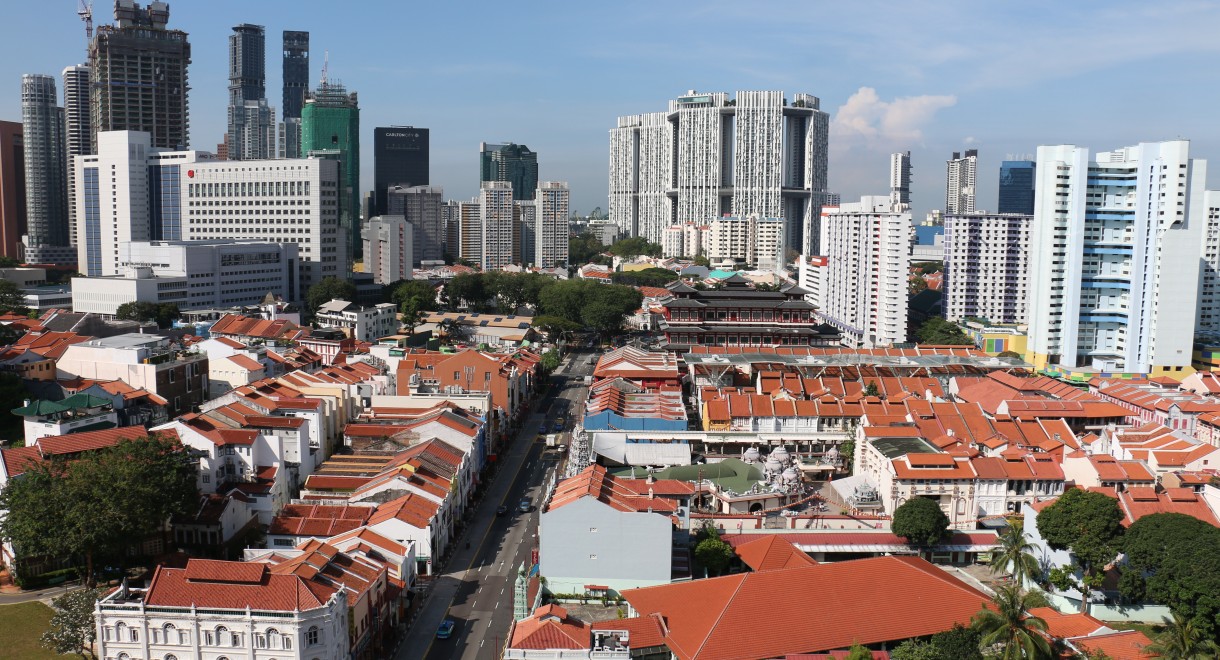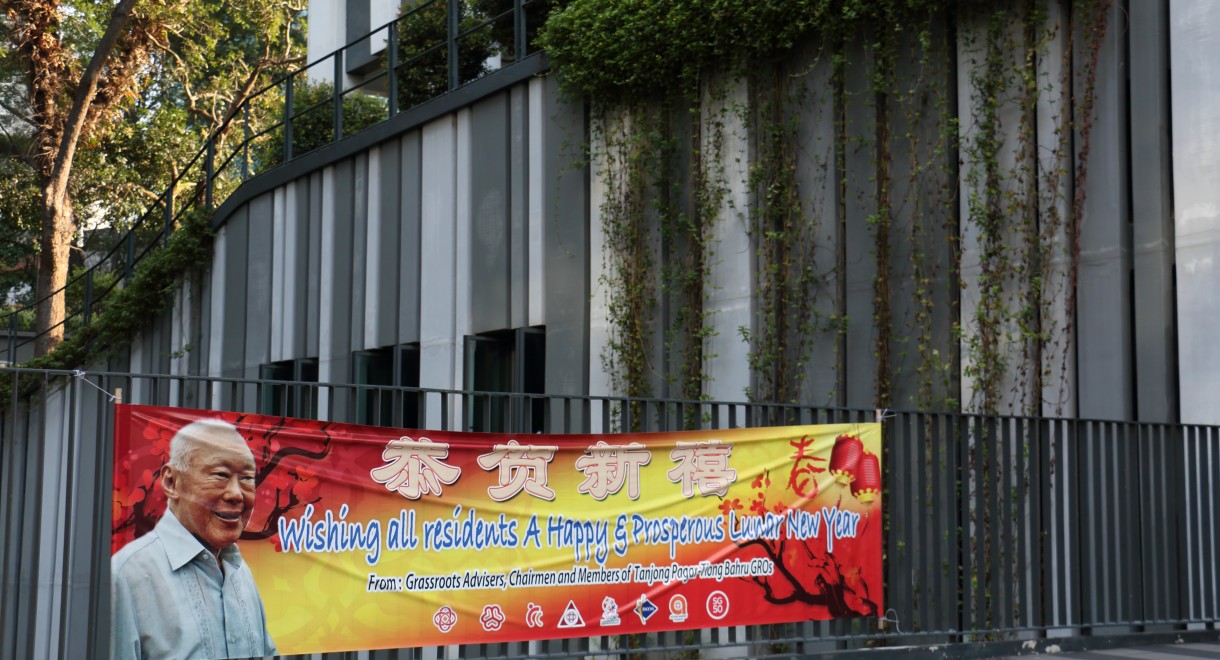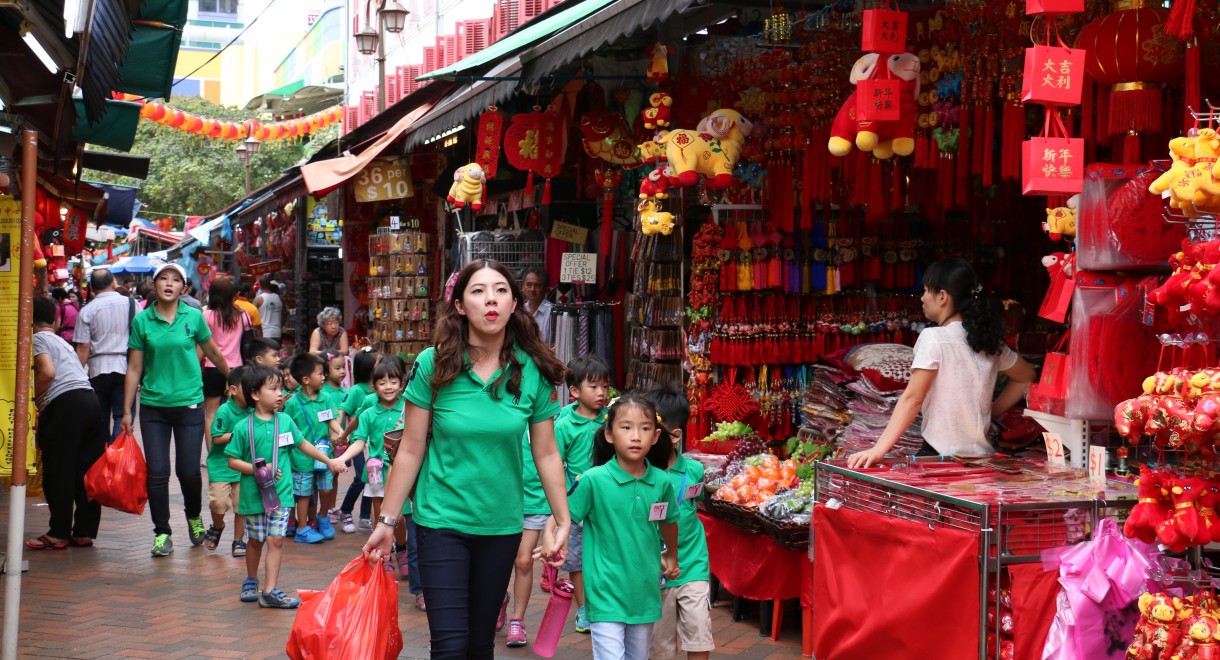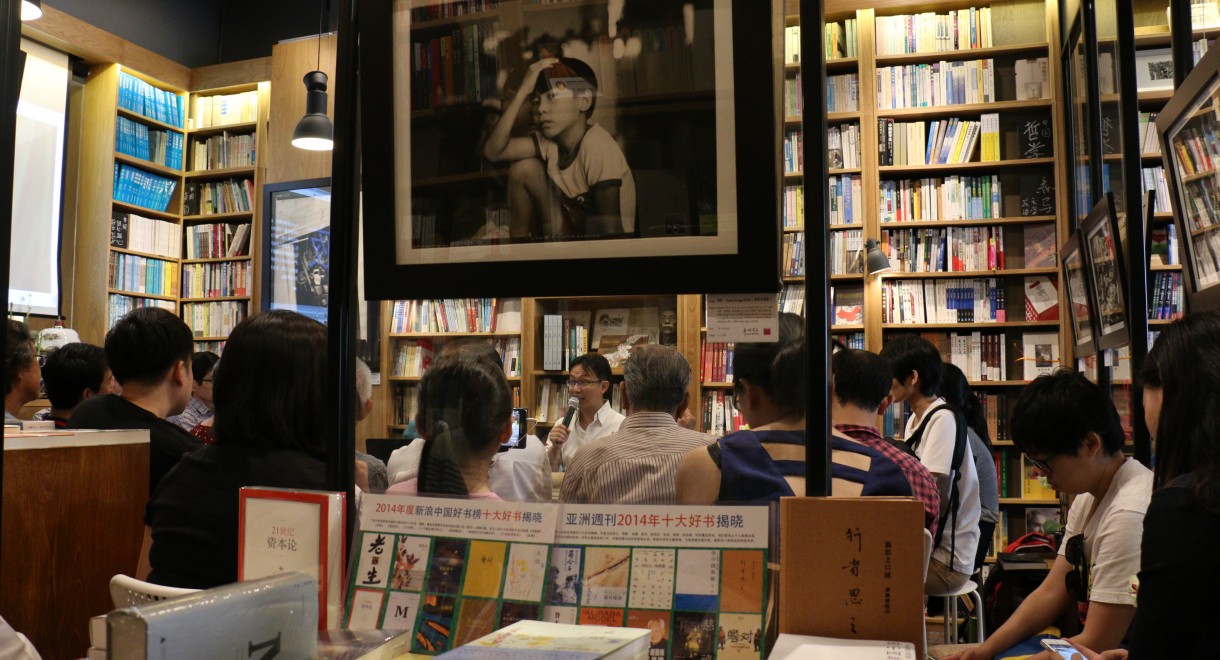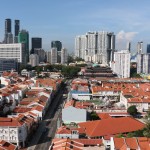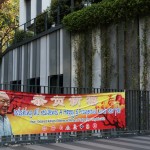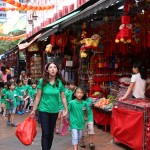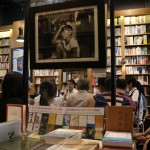Vivien Goh (吳青餘)
我是一名会计员,摄影是我的业余嗜好,我享受猎影时对所见景物有所触动而按下快门的刹那。参加“光影纪实-牛车水旧事新说”的活动,让我有机会从同好的分享中提升摄影技术之余,也进一步了解和反思自己对社会的关注方向;希望在接下来的每一个刹那光影中,技术和内涵都能有所提升。牛车水,对从没在这里生活过的我而言,因为这次的活动而有了不同意义。 I am an accounts executive, photography is my hobby outside of work. I enjoy the moment of pressing the shutter when I am chasing good shots and find a scene that moves me. Participating in Picturing Chinatown not only gave me the chance to improve my photography skills from exchanges with like-minded people, but also to understand and reflect more deeply upon the social directions which I paid attention to. I hope that after this, in the midst of each moment of light and shadow, both technical skill and meaning will be raised. To me as one who has never lived in this place, because of this project, Chinatown now has new meaning for me.
May 6, 2015
光影随笔 – 牛车水 Jottings with Light and Shadow – Chinatown
I have never lived in Chinatown, so my main memories are of rubbing shoulders with the crowds at the market on Lunar New Year’s Eve. This was during my secondary school days, but there are various other episodes from the first years of my working life, when I would shop and eat at Chinatown Complex. Afterwards, I went for a long time without frequenting Chinatown. When I revisited it, it had completely transformed.
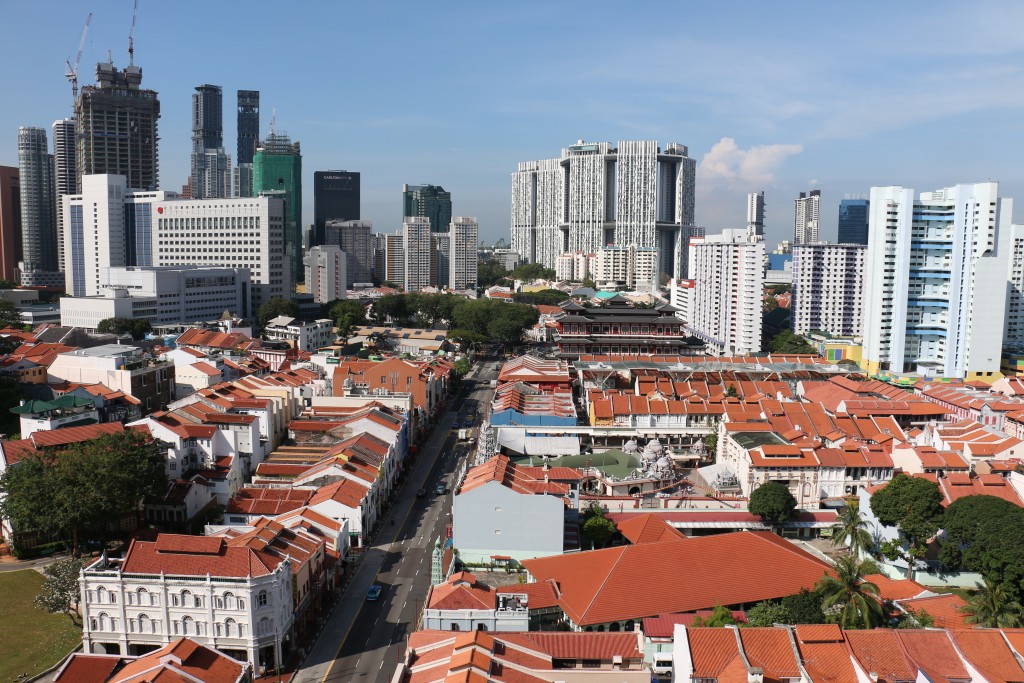
From Hong Lim Park, one can observe a panorama of the new and old living in accord – a vista where a mosque, a Hindu temple and a Buddhist temple coexist peacefully on the same street. Recalling how impoverished and tumultuous the post-independence era was, the idiom ‘lovely are the rivers and mountains’ springs to mind, even though there are no mighty rivers or vast mountains. It is precisely because our society today is stable, with the different races living in harmony, and ample food and housing for all, that I have the leisure to gaze at the landscape below, and contemplate the past and present.
We have gained a great deal from the labours of the past decades, but we have also sacrificed much. We did not have much of a cultural heritage to begin with, nor a very rich ecosystem, but hopefully, as we throw ourselves into developing the economy, we can also pay more attention to the damage suffered by our culture and natural environment, so as to avoid social problems triggered by a failure to balance economic development with social progress.
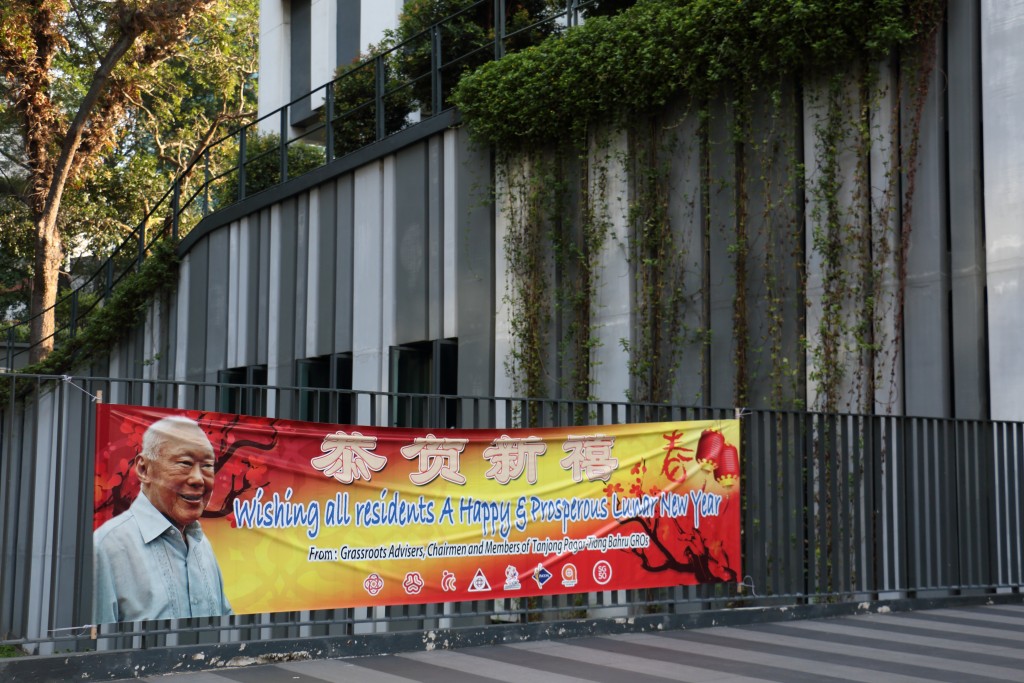
In early March, when I passed by Duxton Hill and saw this banner, it felt like the end of an era was approaching. I pressed the camera shutter with some sorrow.
The image we hold has gradually changed from being one of an authoritarian leader to that of a wise elder. The severe laws that foreigners used to disparage has resulted in the highly safe Singapore of today. I have been fined twice for jaywalking, but although we are mocked by foreigners for being a “Fine” city, I have never felt this was unfair. What’s more, I have come to think of the national campaigns of past years – the Keep Singapore Clean Campaign, the National Courtesy Campaign, the Road Safety Campaign, the National Punctuality Drive – as a form of citizenship education. The twin prongs of national campaigns and strict laws have shaped the collective memories of my generation, as well as cultivating our values.
Whatever our island-state has achieved today has been due to the initiative and dedication of leaders, organisations and citizens. These successes were obtained also through the various sacrifices different groups were forced to make (the discarding of Chinese dialects, forced resettlement due to urban redevelopment, etc.). We have reaped richly from the dedication and sacrifices of past generations, but what will we leave the next generation?
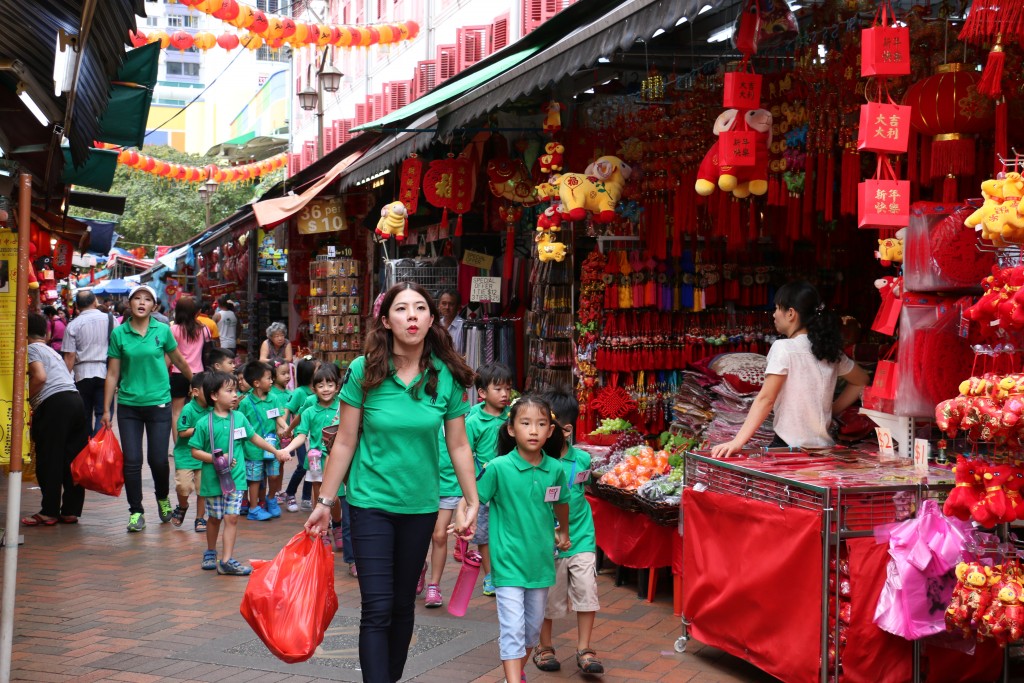
When entering Chinatown in recent years, I always feel a kind of alienation, as if my hometown has become a unfamiliar land. The foreign accents make me feel that perhaps it will take another generation before we can strengthen and consolidate our sense of national identity. Then again, although I understand that commercialisation is inevitable and natural for a market economy, occasionally I feel as disoriented as a tourist.
Chinatown – what cultural legacy can it bequeath to the younger generation? When the future leaders of this nation are adults recollecting their childhood trips to Chinatown, what other memories will they have of it, beyond their elders’ vague stories, lavish displays of souvenirs, and the dazzling lights of various Chinese festivals?
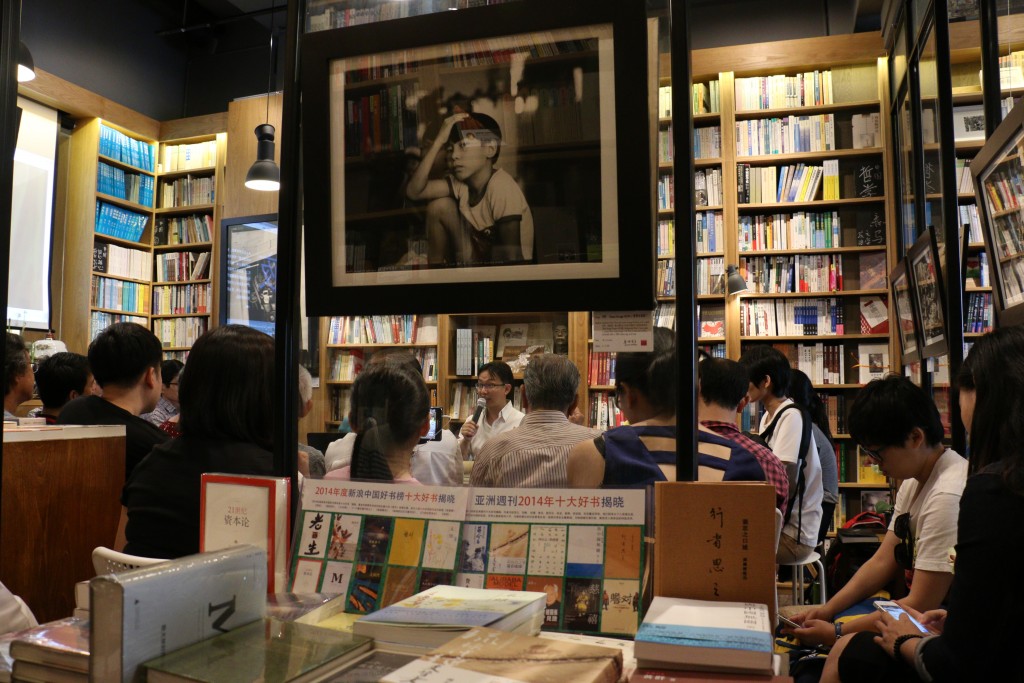
Many activities happen at once in the tiny space of Grassroots Bookshop: bookselling, an exhibition of Billy Mork’s photographs of 1980s Chinatown, as well as the forum, ‘Let literature find a smile through images,’ presented by Dr. Tan Chee Lay. In a nation where Mandarin is diminishing in importance, such events remind me of the unstinting dedication of those who care about the language.
For the sake of their ideals, independent booksellers struggle to survive, yet are also self-reliant. In the commercialised Chinatown of today, the founding of Grassroots is a breath of fresh air.
I came for the photography exhibition and panel discussion. For how long have I been cut off from reading, after years without browsing in bookshops? The scent of books filling the shop evokes memories of my secondary school days, when I used to scurry to the bookshop every Saturday after finishing my extracurricular activities.
As the panel discussion drew to a close, Dr. Tan gave in to popular demand and recited an unpublished poem he had written about Chinatown. Chinatown is the symbol of the Chinese Singaporean population; although I have never experienced living there, this poem still resonates with me.
不仅水也
载来生命之泉
连水也在此扎根
连舌头也灿开
福建人的香铺在广东话的豆腐街
自在地烧香添油点灯求签圣杯
拜着语言天才的神明
你们用潮州话卖
还是吃到一盘声色俱佳的
地道海南鸡饭
瘄就老了
听着听着
方言的耳朵
也老了
只能用一种语言点海南鸡饭福建炒面广东饮茶客家酿豆腐潮州粥
即使
在牛车水
连最夯的政府组屋
也到此扎根
不再平民的平民住宅
连景色也要收费
还有没有
水车牛的后缀
再牛
也牛不过
半杯历史之水
一车时代之薪
我的老家曾经在那里
我的味蕾还停留在那里
我方言的口语习得
还稀稀刷刷流利在那里
我的童真还懵懵懂懂
根植
在
那
里
还在我们
心底
by Tan Chee Lay 2015
there must be more than water
brought the fount of life
even water
has sunk its roots here
that even tongues gleam
the joss-sticks of the Hokkien people
are spread along Cantonese-speaking Tofu Street[1]
at ease, they
burn incense
refill and relight oil lamps
tell fortunes with moon blocks [2]
worship gods with a genius for language
you sell in Teochew
why not have a plate of classic chicken rice
invitingly redolent with Hainanese
houses grow old
listen up listen up
the ears of dialects
are ageing too
when only one language is used to order
Hainanese chicken rice Hokkien mee Cantonese yum cha Hakka yong tau foo Teochew porridge
even in Chinatown
even the most ungainly HDB flats
have taken root here
no longer the public’s public housing
they even charge for the scenery
water
carts
bullocks
still be a postscript to
Chinatown?
no matter how smart you are
you cannot get the better of
a half-cupful of the waters of history
a cartful of the wages of an era
my old home was once there
my insides are still there
my everyday dialect
has been scoured into fluency there
my childhood innocence is still
unsuspectingly
putting
down
roots
over
there
that space
still endures
[1] Chin Chew Street, which is now pedestrianized and located inside China Square shopping mall.
[2] Moon blocks, or jiaobei blocks, (筊杯, jiǎo bēi, lit. “bamboo cups”) are wooden divination tools originating from China, which are used in pairs and thrown to answer a yes or no question. They are made out of wood or bamboo and carved into a crescent shape. Each block is round on one side (known as the yin side) and flat on the other (known as the yang side). It is one of the more commonly used items found in Chinese traditional religion and are used in temples and home shrines along with fortune sticks, both of which are often used together when requesting an answer from the gods. Source: ‘Jiaobei’ (n.d.). Wikipedia, http://en.wikipedia.org/wiki/Jiaobei, retrieved May 23, 2015.

